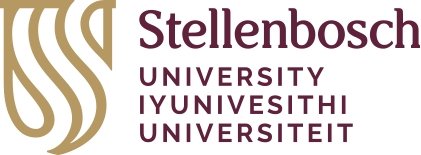
- This event has passed.
Prof Wesaal Khan
June 29, 2023 @ 17:30


Safe water is a human right: Overcoming the last hurdle towards water security for all
Wesaal Khan’s passion for water research started during her PhD studies. While completing two years of her research in Germany, a first-world country with one of the best water supply and sanitation systems globally, she realised that she could apply her newly acquired skills to address the enormous challenges Africa faces with regard to substandard water quality and insufficient sanitation infrastructure. Directly tying in with the United Nations’ sustainable development goals (2015), her research is primarily aimed at achieving good health and wellbeing (goal 3) for the citizens of low and middle-income countries through universal access to safe and affordable drinking water (goal 6). To achieve this, Wesaal and her team conduct innovative research. Two of their research themes in SU’s Water Resources Laboratory are rainwater treatment and the advancement of water quality monitoring, and secondary metabolites exhibiting antimicrobial and antifouling potential.
Wesaal’s inaugural lecture specifically highlights the progression of her research focusing on (i) innovation in water quality monitoring for accurate risk assessment, and (ii) multi-barrier combination water treatment systems.
Innovation in water quality monitoring for accurate risk assessment – Traditionally, water quality is monitored by screening for the presence of indicator organisms, using culture-based methods. However, numerous pitfalls are associated with traditional monitoring, and cell integrity could be applied to distinguish between viable and dead bacteria. Using this principle, Wesaal and her team were one of the first research laboratories worldwide to combine the viability dyes ethidium monoazide bromide and propidium monoazide with quantitative PCR and amplicon-based sequencing to accurately monitor the prevalence and persistence of microbial pathogens in environmental water sources. Subsequently, they apply risk assessment strategies to analyse the potential health impacts and infectious disease hazards of using environmental water for potable and domestic purposes.
Multi-barrier combination water treatment systems – Chemical and physical treatment methods have been applied to improve particularly the microbiological quality of environmental water sources. Yet research has shown that pathogens can initiate various stress-response mechanisms and switch to a more tolerant phenotype when exposed to environmental stressors, such as those experienced during water treatment. Therefore, in exploring alternative strategies to treat water sources, the Water Resources Laboratory investigates the elimination of microbial pathogens through the introduction of a natural enemy or predator, or the compounds it produces. Specifically, Wesaal and her team’s research focuses on the use of predatory bacteria and bacteriophages (biocontrol) in combination with solar treatment strategies to remove waterborne pathogens or reduce the probability of their survival.
WATCH THE INAUGURAL LECTURE HERE
Short biography
Wesaal Khan started her tertiary education at the University of the Western Cape (UWC) and chose Stellenbosch University (SU) for an MSc and later a PhD in Microbiology. She completed her doctorate in 2004. Her doctoral research focused on microbial interactions in drinking water systems, which formed part of a collaboration between SU and the Stadtwerke Düsseldorf in Germany, where she was based for two years. In 2003, she was employed as a researcher by the Cape Peninsula University of Technology, where she was later promoted to associate professor and head of the Biotechnology programme. In 2007, she was also affiliated with North Carolina Agricultural and Technical University in Greensboro, United States, as a guest lecturer and visiting scientist.
Wesaal started her tenure at SU as a senior lecturer in the Microbiology Department in 2011 and was promoted to associate professor in 2017 and professor in January 2023. She is currently the lead researcher of the Department’s Water Resources Laboratory and was recently awarded a C1 rating by the National Research Foundation.
Since 2007, 24 postgraduate students (nine PhD and 15 MSc, of whom nine graduated cum laude) have successfully completed their studies under Wesaal’s supervision or co-supervision. In 2015, she was named first runner-up in the category “Distinguished young woman scientist (Life Sciences)” of the South African Women in Science Awards in acknowledgement of her contribution to building the country’s scientific and research knowledge base.
Over the years, Wesaal and the members of her research groups have published their findings in 71 peer-reviewed journal articles and three book chapters and have registered one patent. She has delivered four keynote and two plenary presentations nationally and internationally and has served on the organising committees of multiple conferences and symposia, including chairing the committee for the South African World Health Organisation’s World Antimicrobial Awareness Week symposium in November 2022. Wesaal currently serves as guest editor for two special issues of the Journal of Environmental Chemical Engineering titled Sustainable Water Treatment Technologies for Use in Resource-Poor Environments and Pioneering Women in Water Research, respectively. She also chairs the Faculty of Science’s Social Impact Committee and collaborates nationally and internationally with partners such as the University of Johannesburg (Gauteng), the Sustainable Livelihoods Foundation (Cape Town), Ulster University (Northern Ireland), the Royal Colleges of Surgeons (Ireland), CSIRO: Land & Water (Australia), Arizona State University (United States), the University of Botswana, and Mekelle University (Ethiopia).

Recent Comments